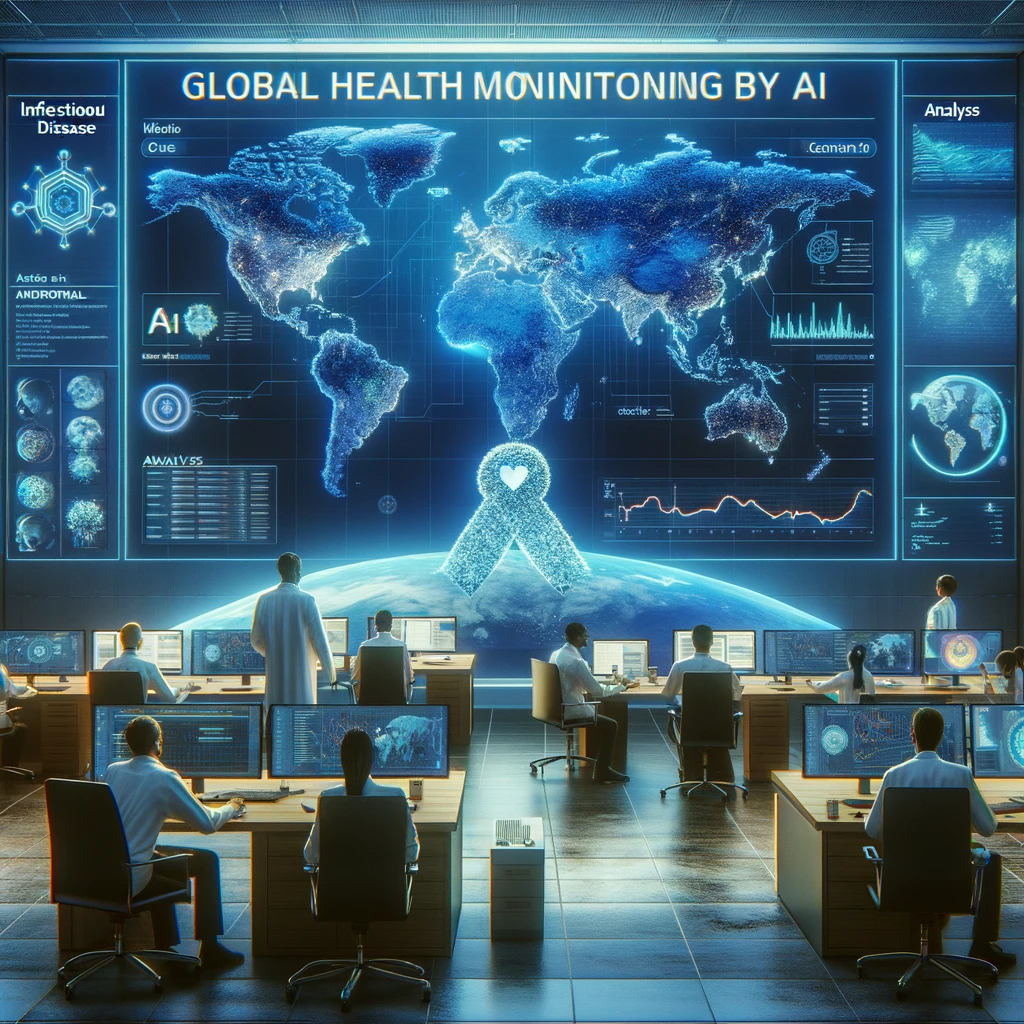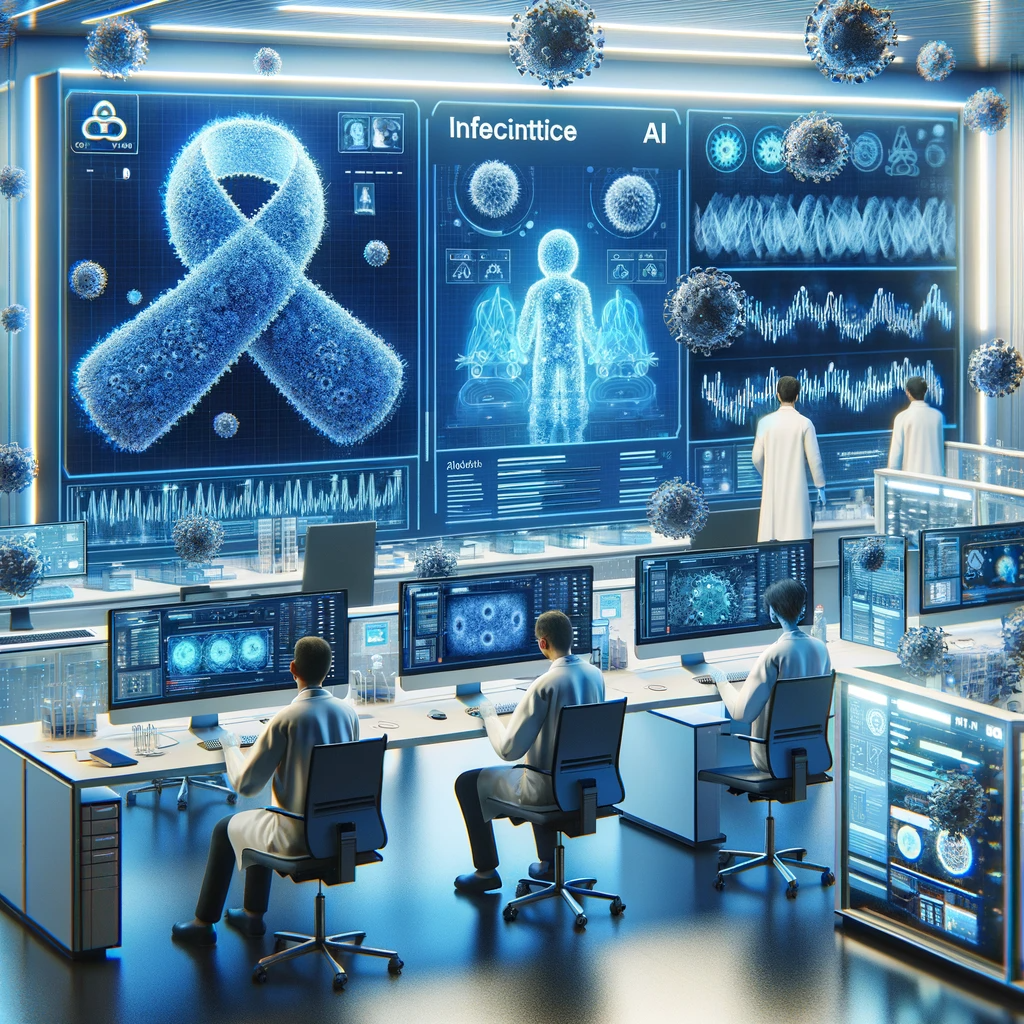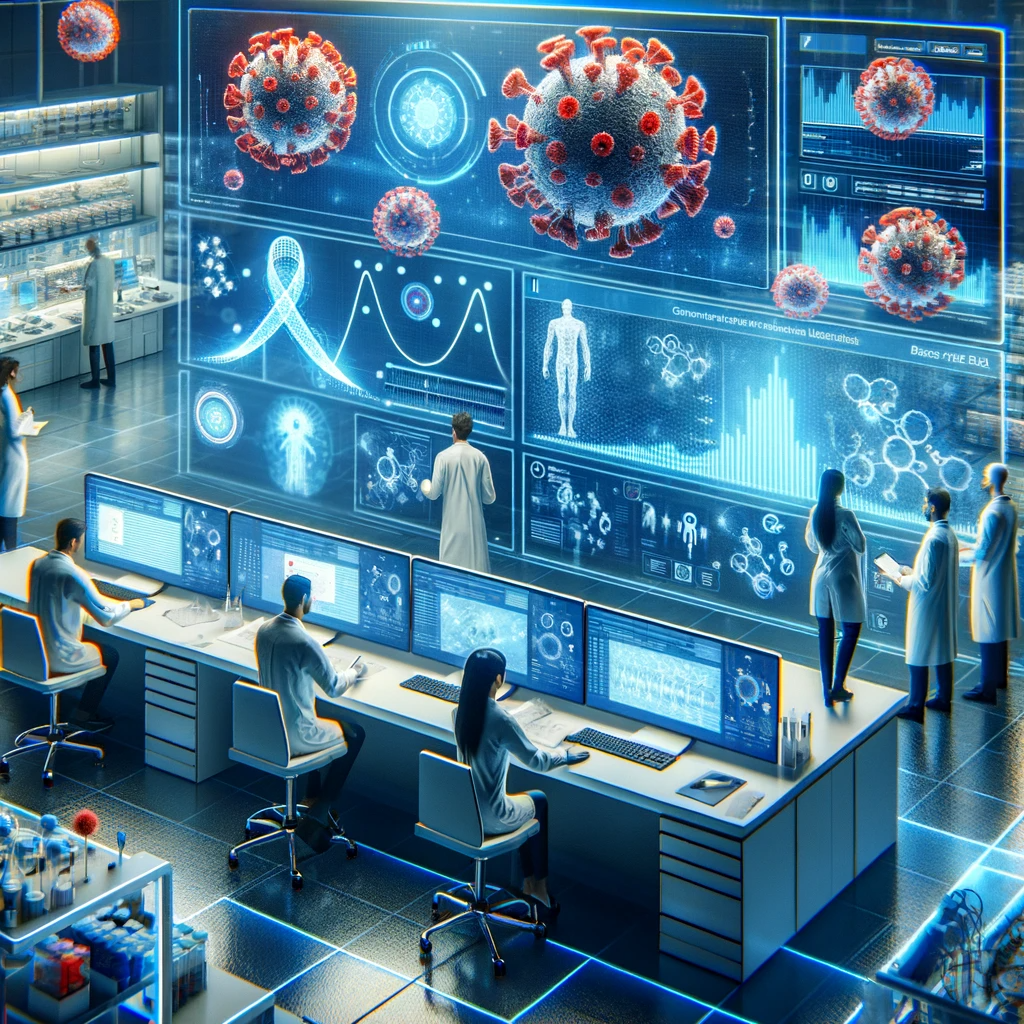In a world where borders blur, populations intermingle, and global travel is routine, infectious diseases wield a formidable power. From pandemics that sweep across continents to localized outbreaks that threaten communities, the impact of infectious diseases is a sobering reminder of the vulnerability of humanity. In the face of these invisible adversaries, the need for innovative solutions has never been more critical.
Enter Artificial Intelligence (AI), the technological marvel that is revolutionizing nearly every facet of our lives. As we navigate an era of unprecedented health challenges, AI emerges as a powerful ally in the battle against infectious diseases. Its ability to track, predict, and manage outbreaks offers a glimmer of hope in our quest for global health security.
This article embarks on a journey through the dynamic intersection of AI and infectious diseases. From the trenches of disease surveillance to the forefront of predictive modeling, from revolutionizing diagnostics to guiding public health strategies, AI is proving to be an indispensable tool in our defense against contagions.
As we delve into the realm of AI-assisted disease control, one thing becomes abundantly clear: AI is not just a technological innovation; it’s a lifeline that has the potential to save lives, mitigate crises, and safeguard our global community. It’s a testament to human ingenuity, leveraging data and algorithms to combat some of the most pressing challenges of our time.
The Challenge of Infectious Diseases
In a world teeming with interconnectedness, infectious diseases pose a formidable challenge. These microscopic adversaries, ranging from viruses to bacteria, can traverse continents in a matter of hours, defying borders and barriers. Pandemics like the COVID-19 crisis and localized outbreaks of diseases like Ebola serve as stark reminders of the relentless threat posed by infectious agents.
Despite advances in medicine and technology, the emergence and re-emergence of infectious diseases remain unpredictable. Our interconnected global society has amplified the speed at which these diseases spread. Early detection and rapid response have become paramount in controlling outbreaks, preventing devastating consequences, and safeguarding public health.

AI in Disease Surveillance and Monitoring
In the battle against infectious diseases, knowledge is power. AI, with its remarkable capacity for data analysis, has emerged as a vital tool in disease surveillance and monitoring. By harnessing the vast sea of information generated daily, AI can detect outbreaks in their infancy and track the spread of diseases with unprecedented accuracy.
AI’s role in disease surveillance extends beyond traditional methods. It scours social media platforms, medical records, and other data sources for early warning signs. When unusual patterns or symptoms emerge, AI can trigger alerts, enabling health authorities to respond swiftly. This real-time tracking capability has proven invaluable in the fight against contagious diseases.
Predictive Modeling and Early Warning Systems
Imagine a world where outbreaks are predicted before they reach full-scale pandemics. AI is making this vision a reality through predictive modeling and early warning systems. By analyzing historical data, population movements, and environmental factors, AI can forecast the potential spread of infectious diseases.
These AI-driven models are not crystal balls, but they offer valuable insights. They help authorities allocate resources, plan interventions, and prepare healthcare systems in advance. The ability to predict outbreaks allows for a proactive response, potentially saving countless lives and minimizing the societal and economic impact of infectious diseases.
AI in Diagnostics and Healthcare
Accurate and timely diagnosis is fundamental to controlling infectious diseases. AI has stepped into the realm of diagnostics with remarkable precision. Image recognition algorithms can analyze medical images, aiding in the rapid identification of diseases. AI can process vast datasets to detect subtle patterns in patient data, improving diagnostic accuracy.
Furthermore, AI plays a pivotal role in drug discovery and vaccine development. It accelerates the identification of potential treatments and vaccines, shortening the timeline for developing critical interventions. In patient care, AI-driven technologies assist in monitoring, treatment planning, and telemedicine, making healthcare more accessible and efficient.
Public Health Strategies Empowered by AI
Effective public health strategies are the linchpin of infectious disease control. AI enhances these strategies by providing valuable insights and decision support. Contact tracing, a crucial component in outbreak management, becomes more efficient and accurate with AI algorithms.
Resource allocation, including the distribution of medical supplies and personnel, benefits from AI-driven optimization. Public health officials can make informed decisions based on data analysis, ensuring that resources are directed where they are most needed. Evidence-based decision-making becomes the cornerstone of effective public health strategies, all thanks to AI.
Challenges and Ethical Considerations
As we embrace AI in the fight against infectious diseases, we must also confront challenges. Data privacy concerns, surveillance ethics, and the responsible use of AI are complex issues that require thoughtful consideration. Striking the right balance between public health and individual rights is a delicate task.
Ethical considerations extend to the potential biases in AI algorithms and the implications of relying heavily on automation. These challenges highlight the importance of a transparent, ethical, and responsible approach to AI adoption in infectious disease management.
Success Stories and Future Prospects
The success stories of AI in combating infectious diseases inspire hope. From AI-powered diagnostics saving lives to early warning systems averting pandemics, the impact is profound. Looking ahead, AI holds the promise of even more effective disease control.
In the future, AI-driven interventions may become standard practice in healthcare and public health. Advances in AI research and technology will continue to expand our capabilities in monitoring, diagnosis, and treatment. The fight against infectious diseases is evolving, and AI is at the forefront of this transformative journey.

In Conclusion
In the battle against infectious diseases, AI has emerged as a formidable ally. Its capacity for surveillance, prediction, diagnostics, and data-driven decision-making is revolutionizing our approach to disease control. As we navigate an ever-changing global landscape, AI stands as a beacon of hope, offering us the tools and insights needed to safeguard public health.
AI is not merely a technological innovation; it’s a lifeline. It empowers us to be proactive rather than reactive in the face of infectious diseases. It reinforces our commitment to early detection, rapid response, and a more resilient healthcare infrastructure. In this era of health challenges, AI is more than a tool; it’s a guardian of global well-being, illuminating the path towards a healthier, safer future for all.
